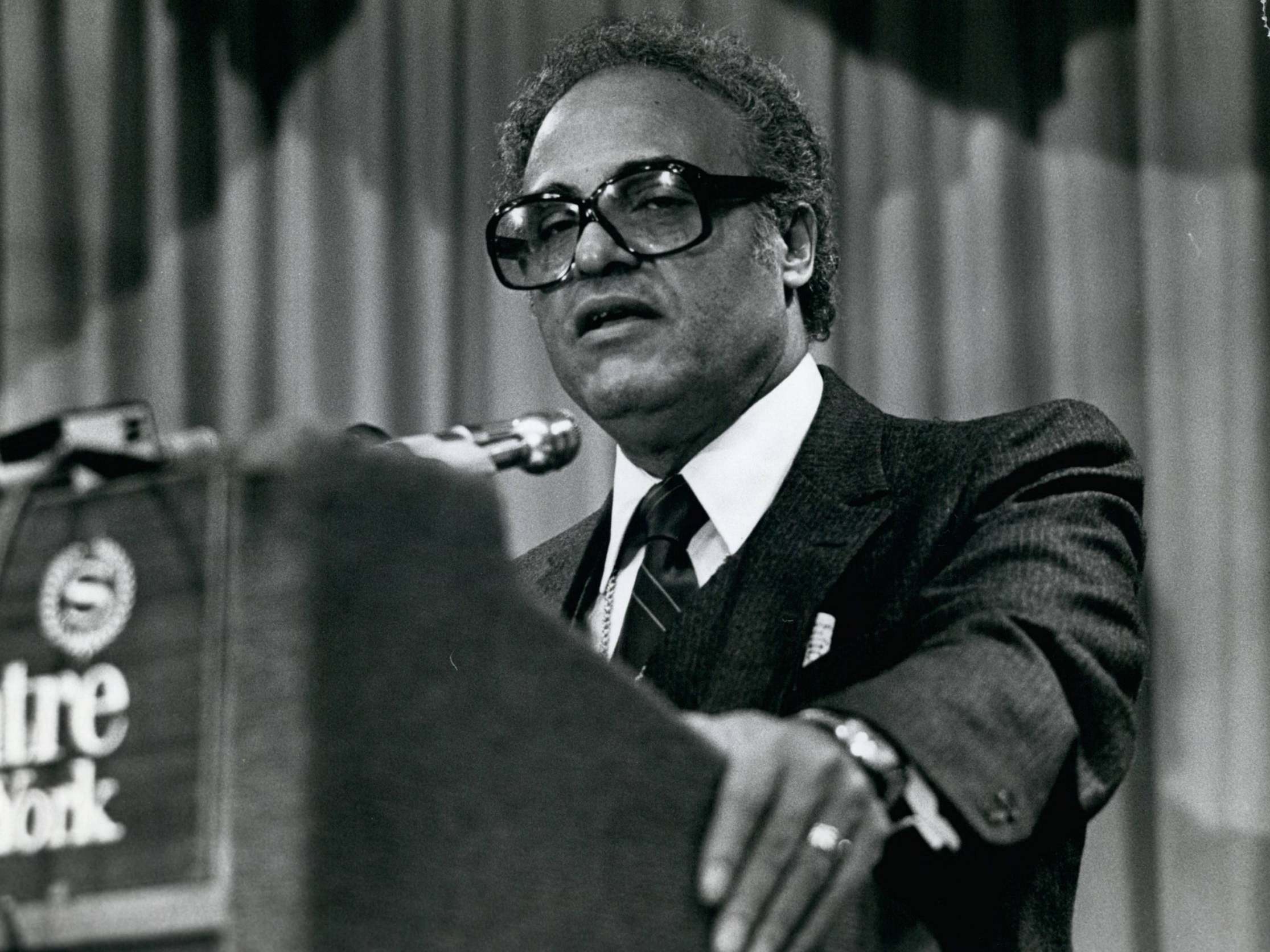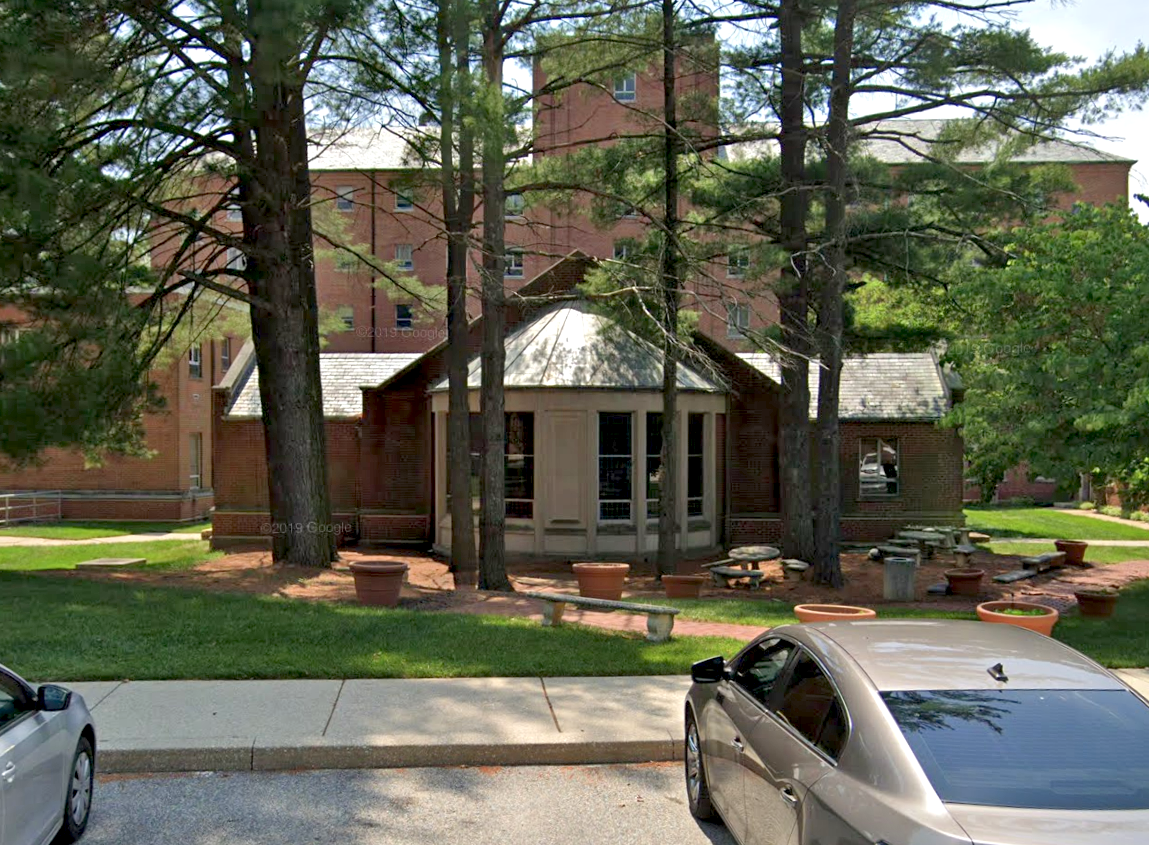‘Excuse my dust’: Writer Dorothy Parker’s ashes could be on the move once again
After she left no family behind, Dorothy Parker’s ashes remained ignored on shelves until she was eventually housed at the NAACP headquarters in Baltimore. Now the organisation is moving to Washington, the question remains: what to do with Parker’s ashes? Jenny Gross reports

Your support helps us to tell the story
From reproductive rights to climate change to Big Tech, The Independent is on the ground when the story is developing. Whether it's investigating the financials of Elon Musk's pro-Trump PAC or producing our latest documentary, 'The A Word', which shines a light on the American women fighting for reproductive rights, we know how important it is to parse out the facts from the messaging.
At such a critical moment in US history, we need reporters on the ground. Your donation allows us to keep sending journalists to speak to both sides of the story.
The Independent is trusted by Americans across the entire political spectrum. And unlike many other quality news outlets, we choose not to lock Americans out of our reporting and analysis with paywalls. We believe quality journalism should be available to everyone, paid for by those who can afford it.
Your support makes all the difference.When the NAACP moves its headquarters from Baltimore to Washington in the coming years, there’s a small object from a backyard garden it doesn’t plan to take along: the ashes of New York writer and critic Dorothy Parker.
How Parker’s ashes came to be interred there – and the debate over where they should go – is a tale as wild as any that she could spin herself.
Parker was known for her essays, short stories and poems published in The New Yorker, Vanity Fair and Vogue, as well as for her wry humour. She died in 1967 at 73 in her suite at the Volney Hotel on the Upper East Side of Manhattan.
Parker, who was Jewish, left the bulk of her estate and royalties from her writings to the Rev Dr Martin Luther King Jr, and in the event of his death, to the NAACP. King had never met her, but said he was deeply touched.
“What impresses and inspires me is that one of America’s most respected and warmly loved women of letters felt so committed to the civil rights movement, that whatever she had she offered to it,” King said in a statement at the time.
Parker, who left no survivors, did not give instructions about where her remains should go, and no one knew what to do with her ashes, according to Marion Meade’s biography of Parker, What Fresh Hell Is This?
So, after sitting at a New York crematory for six years, they were shipped in 1973 to the Wall Street office of Paul O’Dwyer, a lawyer for the executor of Parker’s estate, playwright Lillian Hellman. The ashes were shelved away and left in an office filing cabinet there for 15 years.
When Benjamin L Hooks, then the executive director of the NAACP, learned that Parker’s ashes did not have a final resting place, he suggested they be brought to the NAACP headquarters in Baltimore. He and two leaders of Baltimore’s Jewish community announced the plan to build a memorial garden behind the NAACP headquarters, according to an article in the October 1988 issue of The Crisis, an NAACP magazine.
In 1988, NAACP leaders and local officials held a ceremony and buried an urn containing her cremated remains. Hooks said the memorial marked a commitment to strengthening ties between black people and Jews, according to a transcript of remarks he made at the ceremony.

A plaque in the ground reads: “This memorial garden is dedicated to her noble spirit which celebrated the oneness of humankind and to the bonds of everlasting friendship between black and Jewish people.”
When the group announced last month that it would move its headquarters to Washington in the coming years, the question of what to do with Parker’s remains once again came up for debate.
Aba Blankson, a spokesperson for the NAACP, says there are no plans for the remains to be moved to the new headquarters in Washington.
“I think people assume because we are moving to DC that she’s coming with us, but it is ultimately where the family wishes her to be,” Blankson says. The NAACP has been in talks with distant relatives and has not yet established a plan, she says.
Three of Parker’s great-grandnieces and a great-grandnephew did not respond to requests for comment.
Some people are homebodies, and you would have to leave them where they were because of that, but I see her as a free spirit
J Howard Henderson, who oversaw the NAACP’s transfer of Parker’s ashes to Baltimore from New York, says her ashes should stay where they were.
“You would hate to think she would be a nomad again,” Henderson says.
John Wesley, another official who attended the burial ceremony, says that when he heard the NAACP was moving its headquarters, one of the first questions he asked was what would happen to Parker’s remains.
“I do not want to see Dorothy’s ashes in some place where she is disassociated from her contribution to the civil rights movement for African-Americans,” says Wesley, now the public information officer for Baltimore’s Office of Equity and Civil Rights.
Other fans agree. Francine Gordon, a Dorothy Parker enthusiast who lives in Florida, says she hopes the NAACP will take Parker to the new headquarters.
“She always had abandonment issues,” says Gordon, a non-profit director, referring to Parker’s unhappy love life and three marriages (two of which were to the same man, Alan Campbell). “It is happening again!”
If not, Gordon says, Parker’s ashes should be displayed in the foyer of the Algonquin Hotel near Times Square, where a group of prominent writers and critics, including Parker, gathered almost daily for lunch in the 1920s. The manager of the Algonquin Hotel declined to comment.

Another fan, Marjorie Stewart, says Parker’s ashes should move with the NAACP, or perhaps go to a civil rights museum. She also likes the idea of moving Parker’s remains to New York because she was the quintessential New Yorker, Stewart says, and she was never that thrilled in Hollywood, where she was a writer of the screenplay for the 1937 film A Star Is Born.
“Some people are homebodies, and you would have to leave them where they were because of that,” says Stewart, a playwright and English professor. “But I see her as a free spirit.”
Mara Seaforest, a graphic designer who grew up poring over Parker’s writing in a beloved copy of The Portable Dorothy Parker, says the move could be an opportunity for a burial upgrade.
When Seaforest and her mother, also a big fan, made a trip Baltimore to see the memorial, they were disappointed.
“It was just a little thing in the sidewalk,” she says, adding that they thought it was a wasted trip. The garden is full of weeds, she says, and some of the bricks around the memorial are dislodged.
Given Parker’s influence on American literature and her contributions to the civil rights movement and other progressive causes, Seaforest says she would like to see Parker’s urn displayed in an exhibition at the Library of Congress.
Perhaps Parker would not have minded the debate. Before her death, she suggested her own epitaph: “Excuse my dust.”
She wrote that decades ago, Seaforest says, “and here we are now, still fussing over her dust. I think she’d kind of get a kick out of it.”
© New York Times
Join our commenting forum
Join thought-provoking conversations, follow other Independent readers and see their replies
Comments